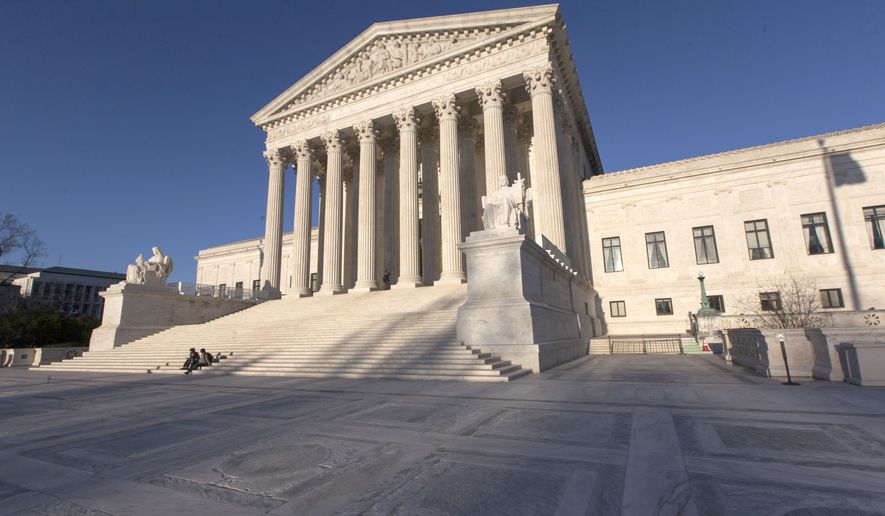Some “dark money” political campaign operatives will no longer be able to cloak big financial contributors’ identities after the Supreme Court on Tuesday allowed a lower court ruling to take effect.
Though the legal battle is not yet over, at least for now the move means nonprofit groups who weigh in on political matters by spending more than $250 must follow disclosure rules, reporting the identities of anyone who gave at least $200 in a year.
The requirement will go into effect immediately, affecting groups already engaged in politicking for the November election, according to the plaintiffs.
“We are about to drive a lot of dark money donors into the light,” tweeted Norm Eisen, chairman of Citizens for Responsibility and Ethics in Washington. “It’s gonna look like the climax of a Harry Potter movie where the creatures shrivel in the sun.”
CREW, a liberal watchdog, filed a challenge six years ago to the activities of Crossroads GPS, a conservative nonprofit co-founded by former Bush political adviser Karl Rove, which has tested the limits of campaign-finance regulations.
Crossroads raised tens of millions of dollars, some of which it spent on political messaging. But it argued since it was a nonprofit group, not a campaign committee, it was governed by a different set of regulations that protected it from having to disclose all its donors.
The Federal Election Commission had long blessed that distinction between political committees and educational nonprofit groups who, while engaging in political messaging, don’t make it their chief purpose.
Critics, though, said the lines have blurred in recent years.
Judge Beryl A. Howell, an Obama appointee to the federal district court in Washington, D.C., agreed, ruling last month that the FEC’s rules were invalid when stacked up against Supreme Court cases and laws passed by Congress.
Crossroads had asked the Supreme Court to stay Judge Howell’s decision. Chief Justice John G. Roberts Jr. had granted a stay but the full court Tuesday said it had erased the stay.
Though Judge Howell’s ruling wasn’t stayed, it has been appealed, meaning higher courts could still reverse her later.
Crossroads did not reveal its legal plans, but a spokesman said they will comply with the decisions.
“While we are disappointed the Supreme Court did not take this opportunity to ensure regulatory clarity for nonpolitical organizations that lawfully engage in election activity, we are confident we can navigate through the current morass and comply with the law, as we always have,” said Crossroads spokesman Chris Pack.
It’s not clear whether groups will have to disclose their donors retroactively or only going forward.
But some groups could be scared away from spending between now and November, fearing disclosure of donors who gave with the understanding they wouldn’t be identified.
Crossroads GPS was formed as a 501(c)(4) nonprofit group, meaning under IRS rules it could engage in some political activity as long as that wasn’t its chief purpose.
It spent more than $70 million in messaging in the 2012 campaign, according to the Center for Responsive Politics.
Crossroads became the poster child for “dark money,” which is the term campaign finance analysts have given to cash used in political messaging whose source does not have to be disclosed.
Democrats in particular have complained about lack of disclosure, calling it a threat to democracy. Though some major liberal groups have also used dark money to play a role in elections, the playing field is dominated by conservative groups.
• Stephen Dinan can be reached at sdinan@washingtontimes.com.




Please read our comment policy before commenting.